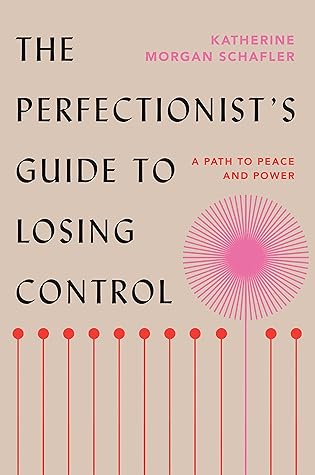More on this book
Community
Kindle Notes & Highlights
Read between
January 18 - January 29, 2025
Whatever you value, consciously or not, you’re going to pursue with full force; as a perfectionist, you won’t be able to help it. To the best of your ability, get clear and intentional on what your most deeply held values are.
You are the person who decides what you will and will not do with your life. Take firm ownership over your decisions. When you accept responsibility for the decisions you make, you position yourself to be less resentful.
what I want. When we can only experience freedom in illusory glimpses, what’s imprisoning us still? Martyrdom is always a good place to start troubleshooting. Giving up your life to make someone else happy doesn’t make that person happy—we know this already. Love from a martyr is the blood-money version of love; it doesn’t feel good to receive it. The only people who are happy to receive offerings from martyrs are narcissists.
We restrict pleasure in misguided expressions of responsibility, the irony being that when it comes to your mental health, restricting pleasure is an irresponsible decision. From a clinical perspective, sacrificing your pleasure is not a virtue; it’s a serious risk factor. “Enjoy” means you are “in joy,”
The more you deny yourself access to pleasure, the less you can access your instincts about what you need and when you need it.
This is your life, and you’re not going to be alive forever. At some point, you’re going to die. While you’re alive, do you want to be “not depressed,” or do you want to feel joy?
We’re secretly nervous that if left to our own devices, we’ll spin out of control, hurt everyone around us, and then go crazy. Wherever could we have gotten that idea?
Pleasure is an energy source. Taking pleasure in our lives sustains us. Taking pleasure out of our lives destroys us. Immediate gratification is not a substitute for pleasure. There is no substitute for pleasure. Perfectionists get scared that they’re going to lose their competitive edge if they let in too much pleasure and get “too happy.” Look at the successful people you admire; joy is their edge.
We all have very good reasons not to trust ourselves. We’ve all betrayed ourselves badly, repeatedly, shamefully, and knowingly. Show me someone who hasn’t abandoned themselves, and I will show you a child. As we grow into adults, our world opens and we make mistakes. Ignoring your own needs and deserting yourself is a universal mistake. Paradoxically, the people who trust themselves the most are usually the people who have betrayed themselves the most profoundly, but then made the decision to walk themselves home—inch by inch—to their authentic selves.
Do you ever wonder what makes you feel so entitled and free to run around doing all the things you don’t want to do?
Surrender is the ultimate loss of control and the greatest form of power. Surrendering is not conceding to defeat. Surrendering is conceding to potentialities beyond your imagining.
A person who understands that they can use their everyday life to animate what’s meaningful to them is a person who is in touch with their power.
Leading with your strengths while also recognizing that every human being has a talent for something—that’s what modesty is. Understanding that whatever it is that you want to accomplish or whomever it is that you want to become, you need so much help and collaboration from other people to get you there—that’s what humility is.
What I do know is that if you’ve stepped outside of your integrity, ignored your instincts, neglected your desires, or otherwise dismissed your true self without acknowledging that those things happened—that’s a problem. It’s a problem because resentment is a placeholder for the unacknowledged.
gratitude increases your joy, but that’s only half true. Gratitude can increase your joy, but only if you’ve forgiven yourself enough to let joy in. Don’t think of gratitude as the key to joy. Gratitude is a gas pedal for joy; self-forgiveness is the key that turns everything else on.
You are a human being. You are not what you do or what you have or who you’re with or what you look like. You are an expansive, powerful, large, ever-changing force in the world, like an ocean—not some tiny forgotten room in an old run-down house. The larger you allow yourself to be, the easier it is to find your way back to yourself. If you think of yourself as the small room, you’ll look for the one door that’ll get you into the room. If you think of yourself as the ocean, you’ll know there are a thousand places you can dive in from.
trusting yourself looks like knowing that even though living the way you want to is taking you so much longer than you thought and it’s not looking the way you thought it would, you can do it—and, in fact, you are already doing it.
What do you want? may be a basic question, but it’s not as basic as Are your fundamental human needs being met?
Dr. Maya Angelou, who said of engaging in community care: “In doing so, your life is enlarged. You belong to everybody, and everybody belongs to you.”
resistance never appears except when preceded by a dream.
The bigger the dream, the bigger the shadow (the more resistance there is). Resistance is a good thing; it means you’re on to something real. There’s no need to personalize the fact that you encounter resistance.
Connecting to your power is not a static task; it is your life’s work. We all lose control over and over again, and we all have the same choice to make. We either fight to regain the illusion of control, or we work to align with our power.


